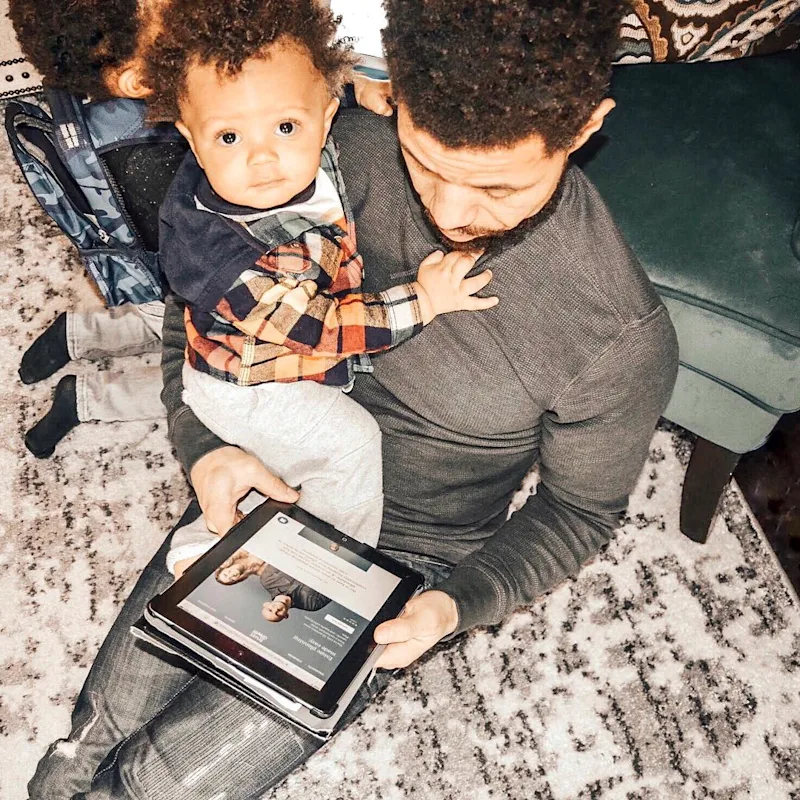
How to Get a Death Certificate in California
Obtaining a death certificate in California doesn't have to be complicated. Learn how to get a copy of a Death Certificate with this step-by-step guide.

By Craig Parker
Assistant General Counsel, Trust & Will
Dealing with the loss of a loved one is never easy, and unfortunately, dealing with the required paperwork can add on stress. If you’re navigating this process in California, one of the important documents you'll need is a death certificate. This official record is required in various legal and personal matters following a death. Whether you're settling an estate, claiming benefits, or simply requiring closure, obtaining a death certificate is one of the first things you’ll want to do. This comprehensive guide will walk you through the steps to obtaining a death certificate in California. We hope this informative overview will help make the task a little less daunting during this challenging time.
Who is Responsible for the Death Certificate in California?
In California, the task of obtaining a death certificate is typically managed by professional funeral directors and hospitals. They typically will complete the Medical Certification of Death and file it with the Local Registrar of Births and Deaths within 8 days of the death. This is done on behalf of the family of the deceased.
How Do I Get a Death Certificate from California?
The thought of obtaining a death certificate can seem daunting, especially during an emotionally challenging time. However, understanding the steps involved can help alleviate some of the stress associated with this task. In this section, we’ll provide you with a clear step-by-step guide on how to obtain a death certificate in the state of California.
Whether you're dealing with this task on behalf of a loved one, or if you're a professional involved in estate matters, use this guide to understand the process and any requirements. We will walk you through each step, from understanding where to begin, to what information you'll need, and where to file your application.
Step 1: Fill out and submit an application for a death certificate
The first step to obtaining a California death certificate begins with filling out the application. only authorized individuals, such as family members, law enforcement, or legal representatives can request a death certificate.
You must include all pertinent information about the deceased, such as their full legal name, date of birth, date of death, and location of death. You will need to provide details of the parent's names, as well as the reason for your request.
There are several ways to submit your application for a death certificate. One way is to mail in your request to the California Department of Public Health's Office of Vital Records. Here, you would fill out and send the Application for Certified Copy of Death Record form along with the appropriate fees.
For a more modern approach, you might consider submitting your application online. Services like VitalChek provide a secure platform for ordering death certificates and offer expedited shipping options if needed.
Lastly, if you prefer dealing directly with your local county, you can do that as well. Visit your county records office or their respective online portals to find out what application process they follow. For instance, if the death took place in Los Angeles County, you would apply through the Los Angeles County Public Health Department. Remember to always verify the fees and forms needed before submitting your application.
Step 2: Wait for the death certificate request to be processed
Once your application is submitted, it goes into the queue to be processed by the state's Department of Health or other respective county office. The length of this process can vary depending on the method of application, the number of requests currently in process, and whether all the required information was provided correctly.
On average, requests sent by mail can take between 3 to 4 weeks to process. This time frame includes both the office's processing time and the return mail time. You may be able to shorten the waiting time to 2 to 3 weeks by ordering through an expedited service. However, it's important to bear in mind that expedited shipping does not expedite the processing time; it only speeds up the delivery once the certificate is ready.
The processing time can go longer if there are any errors or missing information in your application. The office will have to contact you for clarification or for the correct information. This underlines the importance of double-checking your application for accuracy and completeness to avoid delays. Keep in mind that these time frames are estimates; actual processing time may vary.
Step 3: Receive the death certificate in the mail, or pick it up from the County office
Upon successful processing of your application, the death certificate will be sent to the mailing address provided in the application. This is usually done through regular mail. If you paid for expedited service, a courier service would be used. Make sure that the mailing address provided in the application is accurate to avoid unnecessary delays or delivery mishaps.
Alternatively, the death certificate can be picked up in person from the County office or the Department of Health, depending on where the application was filed. For in-person pickup, bring along a valid form of identification. This could be a driver's license, passport, or any other government-issued ID. Visit your respective office’s website to find out when you can visit and pick up the document.
Who Can Get a Death Certificate in California?
In California, the issuance of a death certificate is strictly governed to safeguard the delicate information it contains. Not everyone is allowed to obtain a certified copy of a death certificate due to privacy and identity protection concerns. Those wishing to obtain a certified copy must therefore meet certain eligibility criteria as set by the California Department of Public Health.
Those eligible to obtain a certified copy of a death certificate include:
The registrant or a family member of the registrant.
A party entitled to receive the record because of a court order, or an attorney or a licensed adoption agency seeking the death certificate to comply with the requirements of Section 3140 or 7603 of the Family Code.
A member of a law enforcement agency or a representative of another governmental agency, as provided by law, who is conducting official business.
A child, grandparent, grandchild, sibling, spouse, or domestic partner of the registrant.
An attorney representing the registrant or the registrant's estate, or any person or agency empowered by statute or appointed by a court to act on behalf of the registrant or the registrant's estate.
Commonly Asked Questions About Death Certificates in California
This next section will answer commonly asked questions about death certificates in California. Whether you're curious about the application process, fees, processing times, or circumstances that may require a death certificate, you should find this FAQ informative.
Are death records public in California?
In California, while vital records including death records are considered public information, certified copies of these records are not readily accessible to the general public. Certified copies are only available to the registrant, immediate family members, and certain legal representatives or entitled parties as per California law.
Do California death certificates list cause of death?
Yes, in California, death certificates do list the cause of death. However, pursuant to California Health & Safety Code 103526 (c), only specific individuals or entities are eligible to receive an authorized certified copy of a death record containing the full circumstances and cause of death.
Does the funeral home provide death certificate in California?
Yes, funeral homes in California typically facilitate the process of obtaining a death certificate. The Cemetery and Funeral Bureau states that funeral directors are responsible for filing the certificate with the State Registrar within 8 days of the death and before disposition of the body. They may also order certified copies on behalf of the family if requested.
What is the fastest way to get a death certificate in California?
The fastest way to obtain a death certificate in California is to use online services such as VitalChek. Since local agencies typically take longer to process requests, using online services can help expedite the process and ensure the request is quickly processed by the health department.
How long does it take for a death certificate to be available in California?
In most cases, it will take about 4-6 weeks to receive a death certificate in California after the request has been submitted. However, if the certificate is ordered through a funeral home, it may take only 2-3 weeks for you to have it mailed to you.
Take Control of Your California Estate Plan with Trust & Will
In California, while death certificates do state the cause of death, only specific individuals or entities can receive a certified copy. Funeral homes typically assist in obtaining these certificates and are obligated to file them within 8 days of the death. To expedite the process, online services can be used. Generally, it takes around 4-6 weeks for the certificate to arrive, but when working with a funeral home, it may only take 2-3 weeks. Now that you understand the process of obtaining a death certificate in California, you might want to consider planning ahead for your estate.
At Trust & Will, we’re here to help keep things simple. You can create a fully customizable, state-specific estate plan from the comfort of your own home in just 20 minutes. Take our free quiz to see where you should get started, or compare our different estate planning and settlement options today!
Is there a question here we didn’t answer? Browse more topics in our learn center or chat with a live member support representative!
Trust & Will is an online service providing legal forms and information. We are not a law firm and we do not provide legal advice.
Related Topics
Last updated: March 21, 2025



